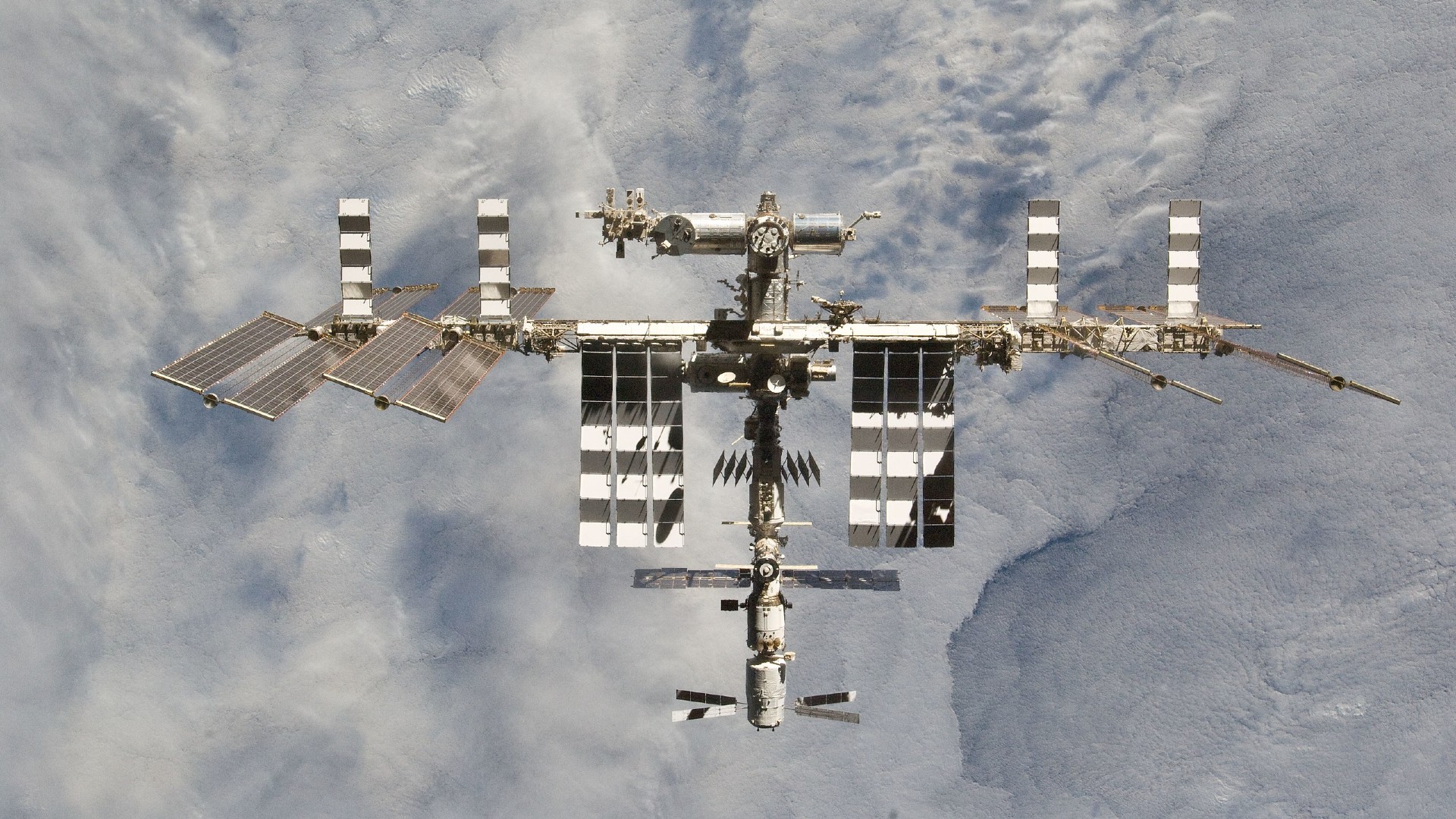'There's nothing magical that happens in 2030': NASA eyes possible ISS extension for astronaut missions
When commercial stations are ready, 'that's when ISS will move out of the way.'

The International Space Station might keep flying past 2030.
A senior NASA official said there is "no big concern" about the health of the International Space Station (ISS) that would require an operational stop six years from now, when the current agreement expires between most of the ISS partners.
"There's nothing magical that happens in 2030," Steve Stich, the manager of the commercial crew program at NASA's Johnson Space Center (JSC) in Houston, said during a livestreamed briefing at the center on Thursday (Jan. 25) about the upcoming SpaceX Crew-8 astronaut mission to the ISS.
Stich said NASA is eyeing the progress of commercial space stations that will host agency astronauts and science in the 2030s. "We want them [the commercial stations] to be supportive, and then when they're ready to go, that's when ISS will move out of the way," he said.
Related: Watch balloon-like space station module explode (on purpose) during 1st full-scale burst test
Keeping the more than 25-year-old ISS flying beyond 2030 will require more than just good health, however. Funding must persist as NASA and most ISS partners also develop expensive crewed moon missions, under the NASA-led Artemis program and the international Artemis Accords that include more than 30 countries.
And politics are a factor as well: Russia would most likely have to extend its own participation past its current limit of 2028. Relations between the United States and Russia have been especially tense since early 2022, when Russia invaded Ukraine and most international space relationships with Russia fell apart.
Breaking space news, the latest updates on rocket launches, skywatching events and more!
The ISS persists for policy reasons and remains largely unaffected by the invasion of Ukraine, NASA has emphasized, although there have been high-level disputes about anti-Ukraine propaganda displayed by cosmonauts on the station. In the meantime, Russia has been lining up its policy with China on a different crewed moon program.
And Russia has only committed to remain a partner on the ISS through 2028. This is no small matter, as the Russian and U.S. sides are so tightly integrated that splitting the orbiting lab apart is impossible, per NASA materials.
That said, Russia's executive director of human spaceflight programs seemed to welcome the ISS extension discussion in remarks broadcast into the press conference at JSC on Thursday.
In English, Sergei Krikalev of Roscosmos said that Russia set the 2028 deadline because "the cycle of extending life of the station is done on four-year cycle on our side," referring to how the Russian space agency's budget is implemented. The lack of extension to 2030 thus far is not "because we have some kind of disagreement" with NASA, he said.
"You ask how long station can work in the future? We don't really know," Krikalev continued. "That's why we continue our flight, [to] do our tests and see with new data. We get to make assessments for the future ... lifetime extension."
The future of low Earth orbit work post-ISS will be commercial, NASA has emphasized, and in late 2021 the agency funded three U.S. teams to undertake early-stage work. The two vendor groups working now include one team co-led by Blue Origin and Sierra Space and another led by Voyager Space. (The third team, Northrop Grumman, announced Oct. 4 it will move to Voyager Space's team instead of working independently.)
In addition, another company, Axiom Space, is working to develop its own space station outside that particular funding framework.
Early-stage design and testing continues on these commercial complexes, and NASA officials have said often that they want to reduce any potential space gap after 2030 as much as feasible when it comes to planning the shift from ISS to commercial platforms. Big space projects often run over time and budget, however, and there are other risks as well: high inflation that could substantially increase costs and the U.S. election year, which may shift space policy, to name some of them.
Recently, discusions at senior agency levels has focused on readying commercial vendors on human rating standards to safely bring astronauts on board. In October 2023, NASA opened a new solicitation asking for early industry "feedback on requirements for new commercial space stations," particularly the human rating.
That solicitation was in the same month that NASA's Aerospace Safety Advisory Panel recommended the agency curate a "comprehensive understanding" of astronaut safety guidelines, according to SpaceNews, based on testimony given at an Oct. 26, 2023 public meeting in Washington, D.C.

Elizabeth Howell (she/her), Ph.D., was a staff writer in the spaceflight channel between 2022 and 2024 specializing in Canadian space news. She was contributing writer for Space.com for 10 years from 2012 to 2024. Elizabeth's reporting includes multiple exclusives with the White House, leading world coverage about a lost-and-found space tomato on the International Space Station, witnessing five human spaceflight launches on two continents, flying parabolic, working inside a spacesuit, and participating in a simulated Mars mission. Her latest book, "Why Am I Taller?" (ECW Press, 2022) is co-written with astronaut Dave Williams.
